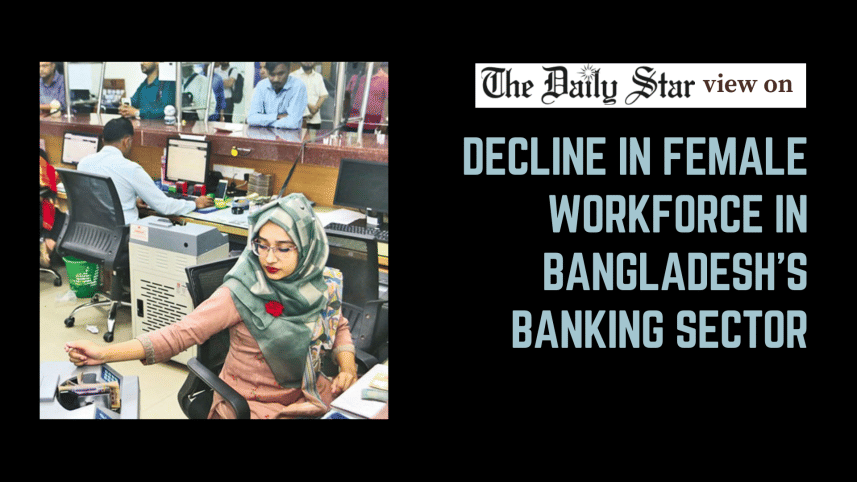Banks must retain female talent

The recent data on women's participation in the country's banking sector presents a dismal trend. Against a backdrop of steadily increasing female enrolment in higher education and a central bank push for greater gender equity, the proportion of women in the financial workforce has shrunk. A 4.96 percent decline year-on-year in the first half of this year is a worrying indicator of a sector where economic headwinds are colliding with deep-seated social and institutional barriers.
While top bankers point to the immediate catalyst—a slowdown in recruitment driven by global economic turbulence—the downturn in female representation is disproportionately sharp. This trend suggests that in times of uncertainty, the default hiring preference may still favour men. A recent World Bank study found that greater diversity, particularly at senior levels, is correlated with stronger financial performance and better risk management.
According to the latest data, there are only 35,782 women among the sector's total workforce of 213,267. Private banks employ 24,050 women, while state banks employ 10,700. Foreign banks, despite having the smallest number of female staff at 1,032, maintain the highest proportion of women at 25.18 percent. However, a significant portion of the female workforce is concentrated in urban centres, particularly Dhaka, often due to spouses' employment and family ties. This urban-centric career preference clashes directly with the sector's rural expansion, leaving new opportunities unfilled by qualified women. Professional ambitions of educated women are often constrained by traditional expectations of domestic responsibility and family proximity. The societal roles of women can create a powerful, often subconscious, pressure that discourages them from accepting roles that disrupt family life.
Hopefully, the central bank's directive to ensure a 50 percent female quota for agent banking staff could be a lever to boost women's participation, particularly in rural areas where such a presence is crucial for financial inclusion. However, real and sustainable progress requires a fundamental shift in institutional behaviour. Banks must move beyond ticking a box and actively create career pathways, offer flexible work arrangements, and foster a culture that supports women through life-cycle events, such as marriage and childbirth. When a qualified woman leaves the workforce, the loss is not merely personal but a setback for the country's economic and social development. To reverse this concerning trend, banks must invest in new models of recruitment and retention. They must actively address safety concerns, and provide robust training. Also, banks should create mentorship programmes that empower women to ascend to senior leadership and board positions since their numbers drop significantly at mid-level and senior roles in financial institutions. It is imperative to build an ecosystem within the sector where women can thrive, lead and contribute fully.



 For all latest news, follow The Daily Star's Google News channel.
For all latest news, follow The Daily Star's Google News channel.
Comments